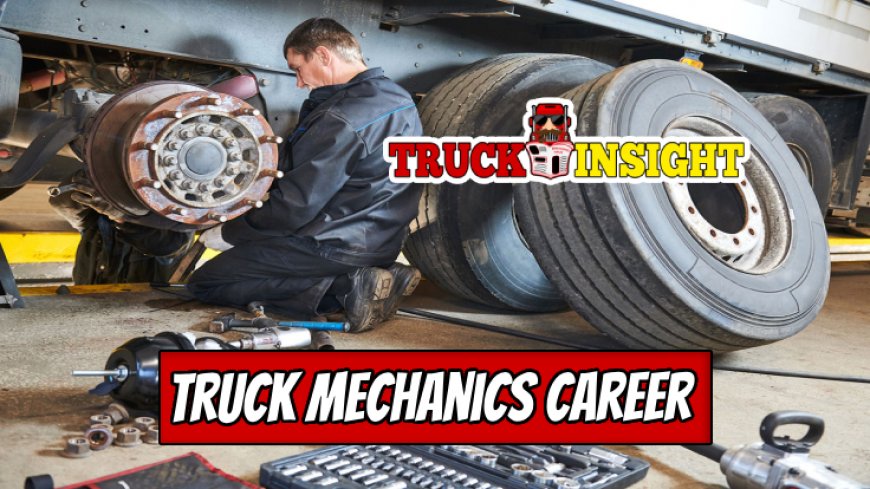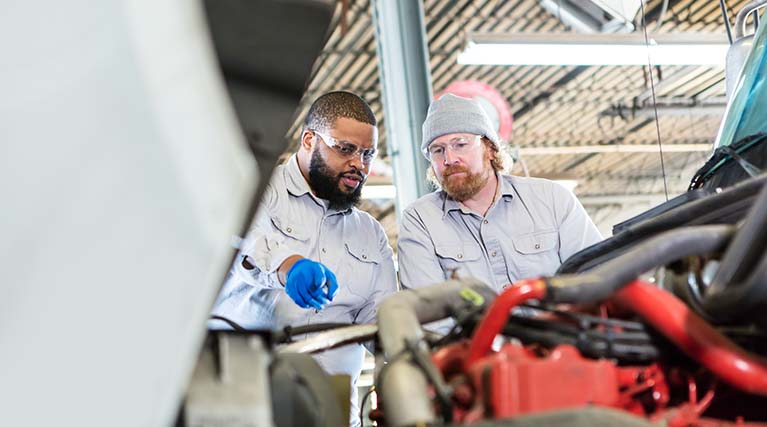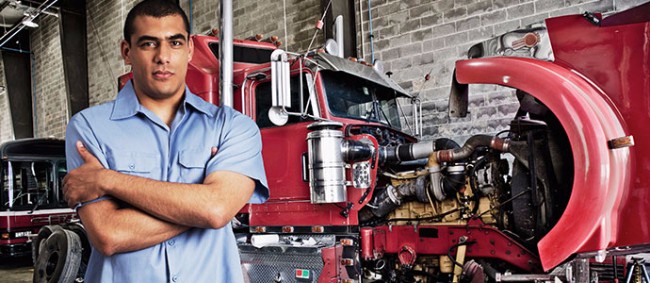Getting Yourself Started In The Truck Mechanics Career
A comprehensive guide to help you kickstart your truck mechanics career. Unleash your potential with the right knowledge today!

Starting a truck mechanics career is an exciting decision that can open the doors to a thriving industry with endless opportunities. For those who have a knack for understanding and improving machinery, a career in truck mechanics is an excellent path to consider. This article aims to provide you with an extensive guide to kickstart your journey in this dynamic and rewarding field.
Dive into Starting a Truck Mechanics Career
With the right knowledge, resources, and dedication, a fulfilling career in truck mechanics is within your reach. Ready to take the wheel? Let's gear up and explore the roadmap to becoming a top-notch truck mechanic.
Table of Contents
- Understanding the Field of Truck Mechanics
- Required Education and Training
- Acquiring Practical Experience
- Getting Certified
- Exploring Job Opportunities in Truck Mechanics
- Maintaining Professional Growth
- Top Troubleshooting Tips for Starting your Truck Mechanics Career
Understanding the Field of Truck Mechanics
Truck mechanics, also known as diesel mechanics, command an integral role in the transportation industry. They are tasked with the inspection, repair, and maintenance of trucks, ensuring that the wheels of the economy keep turning. With the increasing reliance on goods transportation, the demand for skilled truck mechanics continues to grow.
Roles and Responsibilities: Work as a truck mechanic is hands-on and often requires problem-solving skills. On a typical day, they:
- Inspect trucks and identify any issues
- Perform routine maintenance tasks such as oil changes, parts replacements, and brake checks
- Diagnose and repair mechanical and electrical faults
- Test drive vehicles to judge their performance
- Communicate issues, diagnoses, and repair options to customers clearly
Required Education and Training
Stepping into the realm of truck mechanics requires certain educational qualifications and hands-on training. It all begins with a high school diploma or equivalent. A strong foundation in subjects like math, science, and especially auto mechanics can be highly beneficial for those contemplating this career path.
Post-secondary Education
While not always a prerequisite, many mechanics find it useful to have some post-secondary education. Trade schools or community colleges often offer 1-2 year programs in diesel engine repair or similar courses. These programs cover essential skills and knowledge such as:
- Engines and Systems: Understanding a truck's mechanical system is critical. You'll learn about engine structures, fuel systems, emission control systems, and how the different parts of a truck interact.
- Diagnostics: You'll learn how to use diagnostic tools to pinpoint issues, a very important part of being a truck mechanic.
- Practical Skills: The programs usually involve practical workshops to give students hands-on experience.
Apprenticeships
Another route to imbibe the needed skills is through apprenticeships which can range anywhere from 3-4 years. This gives an aspiring mechanic the chance to learn on the job, under the guidance of experienced professionals.
Acquiring Practical Experience

Beyond formal education, gaining practical experience is an essential stepping stone in your truck mechanics career. Real-world experience helps to solidify the theoretical knowledge you’ve acquired and gives you a feel for the day-to-day dynamics of the job.
An internship or entry-level job is a great place to start. Many automotive businesses are open to employing beginners in assisting or trainee roles. This allows you to observe qualified mechanics at work and gradually become more involved in inspections, maintenance tasks, and basic repairs.
Volunteering to work on trucks for friends, family, or local organizations can also help you gather practical experience. You learn by doing - remember, nothing can replace first-hand experience in this field. Every task and challenge you take on makes you a more skilled mechanic, preparing you for a successful career.
Getting Certified
As you build expertise in the field, acquiring professional certification is an important step to validate your skills and enhance your employability. Among the most recognized certifications in the industry is the National Institute for Automotive Service Excellence (ASE) certification. To become ASE certified, you'll need at least two years of on-the-job training or one year of job training and a two-year degree in automotive repair to qualify for the exam.
Certification Areas
There are specialized certification areas that you can choose from, allowing you to highlight your specific skill set and proficiency. Here are some of them:
- Gasoline engines
- Drive train
- Brakes
- Suspension and steering
- Electrical systems
- Heating and air conditioning
- Engine performance
While certification might not be compulsory for all jobs, it demonstrates your commitment and provides an edge when competing for higher positions or salary packages.
Exploring Job Opportunities in Truck Mechanics

Once you're armed with the necessary education, experience, and certifications, the next step in starting your truck mechanics career is to explore job opportunities. Numerous sectors depend on truck transportation, thereby requiring the services of competent truck mechanics.
Some potential employers include:
- Logistics companies
- Trucking companies
- Public transportation services
- Construction companies
- Fleet management companies
Don't forget to leverage online job portals and local job search resources while you're on the hunt. Networking with other professionals in the industry can also lead to promising opportunities.
Maintaining Professional Growth
Even after you’ve landed your dream job, remember that the learning doesn't stop there. In an industry that is constantly evolving with new technologies and best practices, staying updated is crucial. Participating in ongoing training and workshops, attending industry-related seminars, or obtaining additional certifications can augment your professional growth and keep you at the top of your game.
Top Troubleshooting Tips for Starting your Truck Mechanics Career
Finally, we share with you some practical insights that can help you get ahead when starting your truck mechanics career:
- Diagnose Before You Repair: Always take the time to accurately diagnose a problem before you start working on a repair. It'll save you time and prevent accidental damage.
- Keep Your Workspace Clean: A cluttered workspace can lead to lost tools, mislaid parts, or even accidents. Keep your work area clean and organized.
- Trust Your Instincts: If something doesn't feel right, don’t ignore it. Your instincts are built on your expertise and knowledge, trust them.
Starting a truck mechanics career can be both challenging and satisfying. With the right approach, effort, and a continuous learning mindset, you can thrive in this fast-moving industry. Here's to a successful journey ahead!
What's Your Reaction?































































